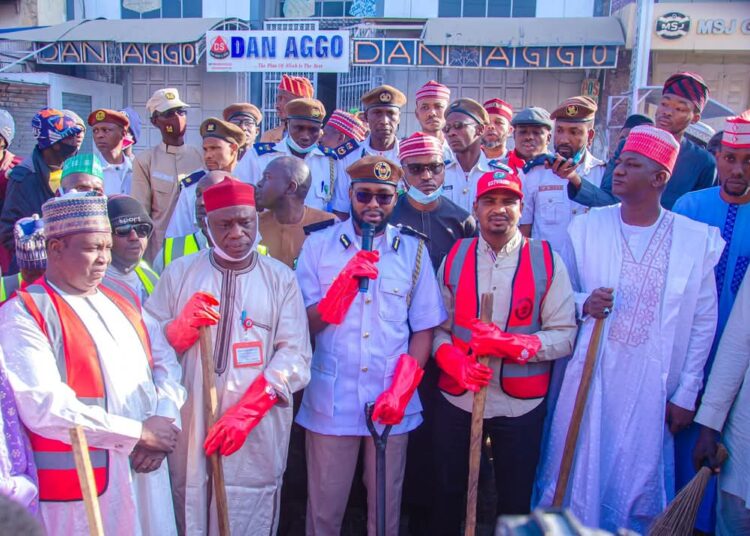Kano State Government has rolled out a new initiative to address the growing challenge of waste disposal by introducing waste disposal bins in public transport vehicles.
The initiative involves placing waste disposal bins in tricycles and buses, as well as in strategic places such as marketplaces, motor parks, and along major roads.
The programme tagged: “Kano State Waste Management and Refuse Disposal Initiative” was unveiled by the state’s Commissioner for Environment and Climate Change, Dr. Dahiru Hashimu on Monday.
Speaking at the launch, Dr. Hashimu stressed the importance of responsible waste disposal in creating a cleaner and healthier environment.
“These bins are designed to help commuters dispose of trash responsibly while on the move,” he said.
“The government is taking a firm stance against littering, and we are working closely with the Ministries of Transportation and Commerce to tackle waste management challenges across the state effectively.”
He vowed that failure to comply with the initiative by the target users will not be tolerated.
Additionally, he said the government has reinstated street sweeping services to further enhance sanitation efforts.
Hashimu revealed that all outstanding salaries owed to the street sweepers have been cleared, and they are being redeployed to key areas such as roads, markets, and public spaces.
“This administration is committed to ensuring that Kano remains one of the cleanest states in the country,” Dr. Hashimu said. “By deploying street sweepers to critical areas, we aim to significantly reduce waste accumulation and provide job opportunities for residents.”
He appealed to the public to actively support the government’s efforts by using the waste bins provided and avoiding littering.
The Commissioner also called on transport operators, traders, and all residents to take ownership of their environments and prioritise cleanliness.
“Environmental cleanliness is a shared responsibility,” he emphasised.
“While the government is committed to providing the necessary infrastructure, we need the cooperation of all stakeholders, including community leaders, traditional rulers, and religious institutions to raise awareness and foster a culture of cleanliness.”
The commissioner also invited private sector organisations to partner with the government on waste management and waste-to-wealth initiatives.





